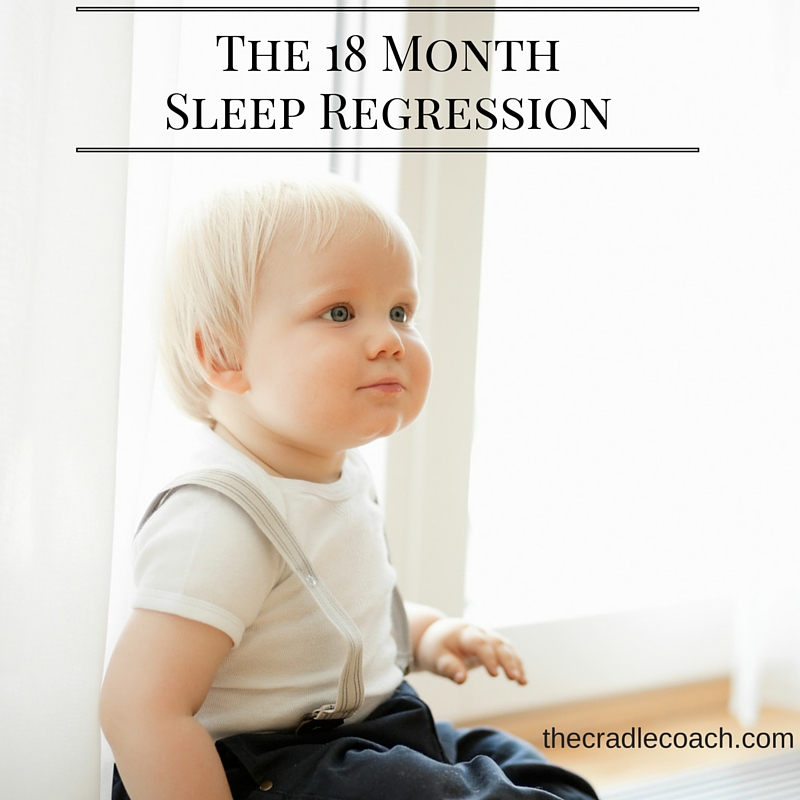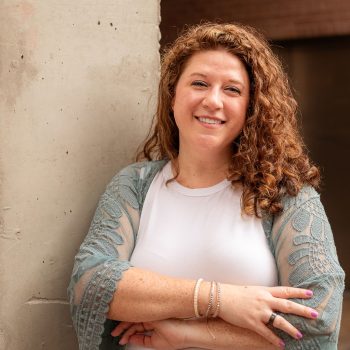
Before-
Sleep regressions can be extremely frustrating. Just when you think your done with sleep training and your child is sleeping through the night, your child catches a cold, teething occurs or a vacation happens and you’re suddenly right back where you started. These moments happen in most every child’s life and can cause a parent feeling hopeless. These were the exact feelings Tracy and Michael felt when their son Thomas began regressing with sleep. Thomas is an 18 month old blue-eyed cutie who was sleeping perfectly through the night with a strict routine during the day since he was seven months old. Tracy and Michael were lost on how to help him when his sleep regression began. Two days after Thomas turned 18 months old, he began waking up earlier and earlier during his naps. Tracy thought it was just a phase but after two weeks of waking up after only sleeping for 35 minutes in the day, she began to wonder what was happening. Not only were his naps becoming difficult but he was fighting when placed in his crib during bedtime. He would jump in his crib, crying until he was picked up. He only would fall asleep if Tracy rocked him to sleep. They immediately tried to sleep train Thomas with the method they used when he was seven months old but Thomas wouldn’t budge. Nothing was working and Tracy and Michael felt discouraged.
During-
There are two main sleep regressions that happen during the toddler years: one happens around 18 months, and the other happens right around the two year mark. They can be traced to a baby’s physical and mental development at that particular stage. At 18 months, there are typically three physical and developmental milestones that contribute to sleep regression: Teething (many toddlers are cutting their 4 canine teeth around 18 months), separation anxiety (this tends to peak and be at its worst from 10-18 months), and a sense of becoming independent (18 month old’s are learning to exert their own wills, and are likely to resist doing something they don’t want to do — like going to bed). This happened overnight for Thomas. I came to help sleep train him after things had been progressively worse after three weeks. At this point, Thomas was fully past the regression and now bad habits had formed that needed to be broken. Tracy and Michael were fully on board and ready for anything I threw at them. First thing I did was gave them two new methods to choose from, something they felt comfortable with and could do without me having to be there. They decided to go with a 5-10-15 check based off the book Solve Your Child’s Sleep Problems. As soon as Tracy placed him in his crib, he jumped up and began crying out for his mommy to come get him. Her heart sunk. My heart sunk. And so did Micahel’s. Never easy but very much necessary. Tracy purchased the amazing Motorola MBP36S Remote Wireless Video Baby Monitor
that allowed her to see Michael without any worries. Five minutes had passed and Michael walked in and laid Thomas back down. Ten minutes had passed and Tracy walked in, laying Thomas back down. Fifteen minutes passed and Michael went in again. This process continued on for another 54 minutes. Then there it was… silence. Complete silence. Thomas had quietly fallen asleep.
Later that night, seven hours to be exact, Tracy heard a soft cry on the monitor. Thomas was whimpering off and on, standing against his crib rail. After five minutes had passed, Tracy was just about to get up and settle him down when she looked at the monitor and noticed Thomas had laid back down to go to sleep. Tracy felt pure joy that she didn’t have to go rock him to sleep. The next morning Thomas woke up bright eyed and ready to start the day, happy as a clam.
After-
After three days of strict, consistent sleep training, Thomas is sleeping again! All on his own. Tracy learned how easy it was to create some really tough habits to break during phases like this. Truth be told, the 18 month regression is a really tough one. Why? Because there’s a “discipline factor” involved in this regression that wasn’t part of the earlier sleep regressions. Like I explained to Tracy and Michael, there are ways you can work to minimize your toddler’s sleeplessness (and your own!):
- *Set clear boundaries for your toddler, especially at nap time and bedtime.
*Be consistent and remind yourself that this phase won’t last forever.
*Don’t change your toddler’s schedule or start dropping naps. The worst thing you can do is create new, long-term habit for a short-term phase.
This hard phase was handled so well by these two amazing parents. With set boundaries and lots of encouragement, you both showed Thomas how to sleep on his own once again. Congratulations and have sweet dreams!
